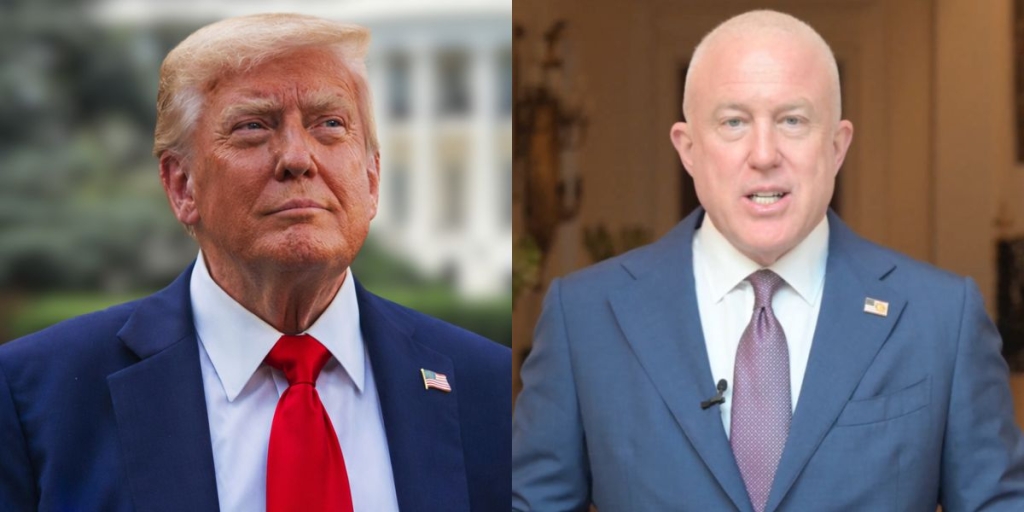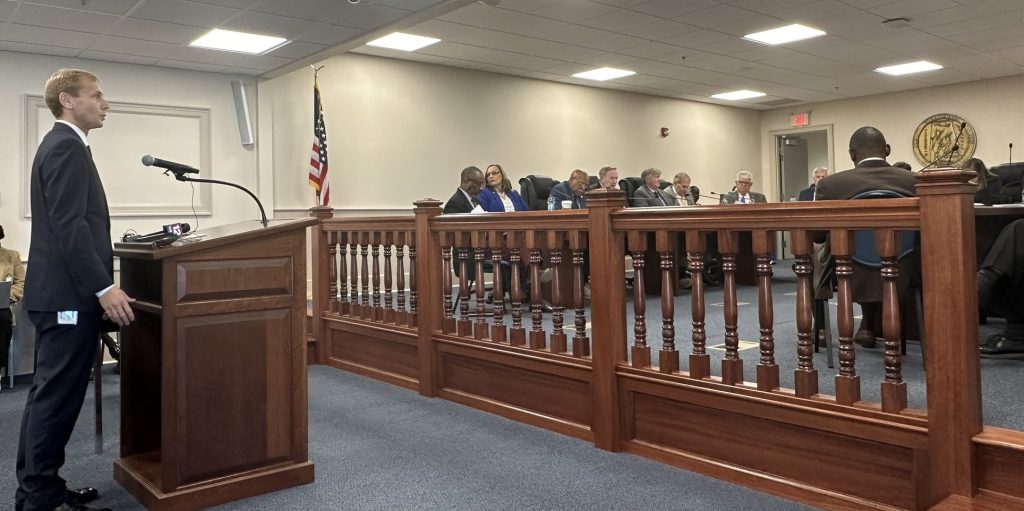On Wednesday, the Alabama Senate passed legislation allowing local city councils and county commissions to remove members of their local library boards. Senate Bill 10 is sponsored by State Senator Chris Elliott (R-Josephine).
“This bill deals with local library boards and how the members are appointed and their appointing authority,” Elliott explained. “In this instance local library boards, once they are appointed, are not expressly allowed to be removed by their local appointing authority.”
“We ought to leave it up to the locals,” continued Elliott. “We ought to leave it to the local city councils and the local county commissions who made the appointment ought to be able to unmake the appointment and that is what this bill does.”
Sen. Rodger Smitherman (D-Birmingham) asked, “How were they appointed prior to now?”
“I wasn’t aware of how they were appointed statewide and why they were not able to be removed by the appointing authority,” Elliott answered. “I had a number of local officials, mayors and such come to me and they said we have got this board that we appointed; but nowhere in the statute does it allow us to remove them if we don’t like them. It’s our authority that we have delegated to this library board, and we want to make sure that we have the ability to govern our own library board if we need to.”
“This simply says – If you are a library board member it is not an appointment to a federal judgeship and the appointing authority that appointed you has the ability to remove you,” said Elliott.
RELATED: Alabama Public Library Service exits from controversial national group
Smitherman asked, “Is there anywhere in this bill that sets the criteria for them to remove them?”
“This came up in committee. It was a good question that was asked by the Lady from Jefferson and also my colleague, the Whip here, about listen – should we have a higher standard to remove somebody than to appoint someone,” Elliott said. “I think you will see an amendment coming up on that that requires two thirds vote to remove someone by right now there is no authority at all. They just do whatever they want. No authority to remove them.”
“We need a uniform standard If we are going to make a bill that uniformly changes the standard for everybody,” Smitherman said. “It has to be for cause, not because they don’t like them.”
The body tabled the existing committee amendment and replaced it instead with an amendment by Sen. Clyde Chambliss (R-Prattville).
The Chambliss amendment made a two-thirds majority necessary to remove someone from a library board. It also clarified that joint libraries between counties and cities have the same language as libraries with just one government.
Smitherman offered an amendment that “(f) The appointing authorities shall coordinate their appointments to assure the library board membership is inclusive and reflects the racial, gender, geographic, urban, rural, and economic diversity of the state.”
The Smitherman amendment was adopted 32 to 0.
Libraries have generated a lot of controversy over the past year regarding the inclusion of controversial books in the children’s section promoting alternative sexual lifestyles, gender transitioning, and promoting Marxism.
RELATED: Ivey seeks answers over ‘sexually suggestive’ books in public libraries
Senate Minority leader Bobby Singleton (D-Greensboro) said, “This is about censorship. This is not Nazi Germany where they burned books in the street.”
Singleton demanded that libraries that removes books from its collection should report that back to the Governor and the Legislature.
Singleton offered an amendment: “Each library board created pursuant to this section, no later than December 31, shall provide, annually, to the Governor, the Speaker of the House of Representatives, and the President Pro Tempore of the Senate a report detailing the membership of the board and any actions the board has taken regarding the review or removal of items in their collection during the previous 12 months.”
“I want to know what they did,” Singleton said. “I want to know what they are doing. I would like for it to be reported back to us what is being removed.”
The Singleton amendment was adopted 28 to 0.
“We can’t go down this road to censorship, that is a bad road to go down,” Singleton said.
SB10 passed the Senate as amended in a 26 to 7 vote. It now goes to the House of Representatives for their consideration.
To connect with the author of this story, or to comment, email [email protected]













